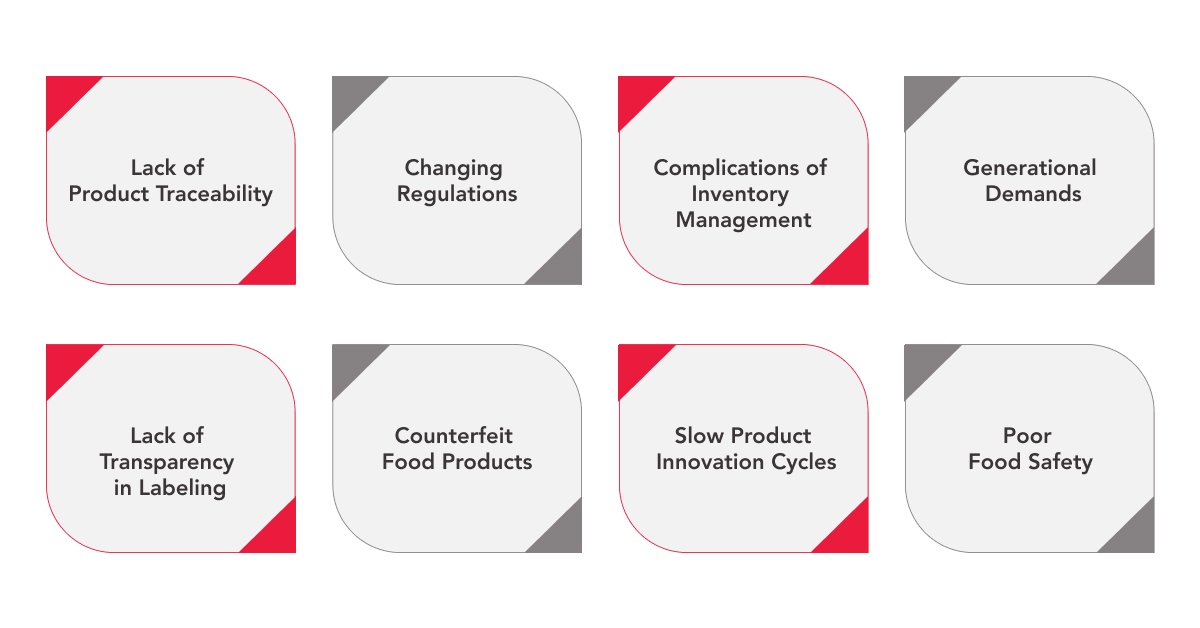From farm to fork: Blockchain traceability in the food industry
Our customers demand more and better every day. Addressing the needs of trust in a brand is vital. Anticipating the information, actions and culture required by a brand and customer to build that trust is a key component.
The creation and use of goods within the food manufacturing industry has many potential negative consequences: environmental damage, exploitative extraction, unsafe work conditions, forgery, and the huge amounts of waste at the end of product life. Our relationship with the material world is broken.
Companies should be able to prove claims and attributes of sustainable products, organic products, locally produced food to provide auditability and accountability to customers for verification with a technology solution they can trust.

Blockchain traceability
Workers at each stage in the food supply chain update the database with information about the product.
A consumer who wishes to know the origin of the food or where the processing has taken place, can go back and trace the activity. This offers conclusive advantages such as the reduction of food fraud and false labelling. Blockchain is fully equipped to handle the tracing of the food from suppliers to the consumer who buys it. Thus, companies can harness this power to increase their visibility on the production line and offer a better quality of food to the market.
Some of the use cases that our customers can see value from are discussed below.
Food safety
Consumers can buy all their products without worrying about contamination or any other issue. As the food industry is still not suited to track down the true source of the contamination. In most cases, it can even go undetected until it’s too late. Using blockchain based traceability solutions, companies trace every single produce back to the farm and row that it was harvested from within seconds. This can help faster recalls and eventually maintain high safety standards More so, they can even handle their by-products more carefully to maintain the quality and standard of their foods without any issues.

Food miles
Brands often make claims of sourcing locally making them a sustainable and earth friendly company. This claim needs to be supported by the brand by offering verification of this claim through traceability solutions that can be trusted by their customer. In this solution, every ingredient can be tracked for the miles that it has travelled to complete the finished food item.
Food industry supplier selection
A finished product is as good as the raw material used in its making. Therefore, the quality of raw materials is paramount. The raw material is directly linked with suppliers’ credibility. Using blockchain in the food supply chain, companies can connect with better suppliers where the suppliers have to offer provenance of their quality. So, blockchain can create a marketplace where suppliers can connect with the buyers and bid on certain projects based on their quality.
Improved inventory management
Blockchain in the food supply chain automates the process of food production and gets rid of discrepancies within the production line. Therefore, it can significantly shorten the Lead Time and evidently improve inventory management.
Prevents price coercion
Companies change the price of their food due to many reasons – social or environmental, making it one of the most volatile industries at the moment. Blockchain help reduces the cost of making the products. It can also cut off all the middlemen fees, ultimately reducing the final pricing for the consumers.
Eliminating counterfeit products
Blockchain helps to eradicate the increased number of counterfeit products. If people start to eat counterfeit products, they can fall seriously ill, and it can even lead to death. But, blockchain in food traceability can solve the issue instantly. As blockchain can track all the products from the production line to the consumer, it can ensure whether the product is authentic or not. More so, it can also reduce the scope of counterfeit products getting into the market by identifying the source of the problem.
Proving label claims
Blockchain can be used in food safety initiatives to fight the problems related to food labeling. As blockchain will record every single element you used in the making process of a product, you can make that record public to your consumers in order to prove your label claims.








